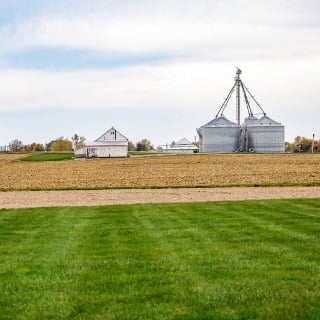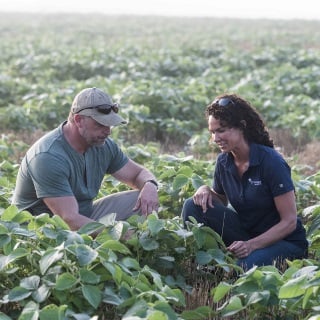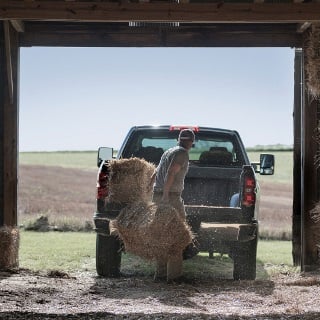Inflation’s impact on beef demand. Weather patterns. A new Farm Bill and potential regulations in play in Washington, D.C. There’s no shortage of potential challenges for cattle producers to consider as 2022 comes to a close and a new year begins.
To help producers gain some insight into the current market landscape, Farm Credit Mid-America recently hosted a wide-ranging discussion on market trends and issues affecting the industry with the head of the National Cattleman’s Beef Association (NCBA) and a market expert from CattleFax.
Inflation is causing consumers to be more mindful on where they spend their disposable income, which impacts the protein industry. Cattle producers should keep an eye on those trends, says Patrick Linnell, CattleFax Director of Cattle Market Research & Analysis, but the good news is that price for beef has not moved higher like other proteins and demand has continued to remain high. In fact, retail beef demand is the second highest it’s been in the U.S. since 1998 – due, in large part, to improvements in quality, Linnell says.
“The market does continue to pay more and more dollars for quality product” he says. “So, those investments in genetics that you’re all making do tend to pay off over time.”
Looking at the impact of recent drought conditions and the implications of culling and slaughter, Linnell says beef cow culling and slaughter is up 13 percent compared to a year ago, which he expects to moderate throughout 2023. He cautions producers to expect another two or three years of decline since many heifer calves haven’t been retained due to lack of feed or space.
On the legislative side, Colin Woodall, Chief Executive Officer of NCBA, covered a handful of issues the organization is tracking on behalf of cattle producers, including the 2023 Farm Bill. The group’s top priority for the Farm Bill, he says, is to fund and improve risk management tools like Livestock Risk Protection and Pasture, Range, Forage insurance that “allow producers to manage risk and be profitable.”
“There’s a lot of talk about sustainability but sustainability starts with all of you,” Woodall says. “If we can’t keep you on the land… then the rest of the discussion makes no difference whatsoever. We (have to) keep you there, and that means risk management.”
Funding for foot and mouth disease vaccines is also high on NCBA’s list, he says. With the disease showing up in Egypt and Indonesia, it’s a concern that producers need to track. Other ongoing and upcoming legislative issues include:
- Grassley-Fischer bill: Woodall says NCBA is working closely with House and Senate lawmakers from both parties to stop the bill from allowing too much government interference in the cattle and beef markets. The current bill, he says, is “one-size-fits-all” and doesn’t take into account that agriculture in states like Kentucky and Indiana is different than agriculture in Kansas or California.
- Meatpacking Special Investigator Act: NCBA is working against legislation that would install a special investigator at the USDA to enforce the Packers and Stockyards Act. NCBA is pushing for USDA to fully staff the division instead of creating a new Special Investigator position.
- New WOTUS rules: NCBA is tracking a rewriting of the Waters of the United States (WOTUS) rules that imposed regulations on small waterways and water features on private farmland.
To hear more insight and analysis from, watch the full webinar above.





